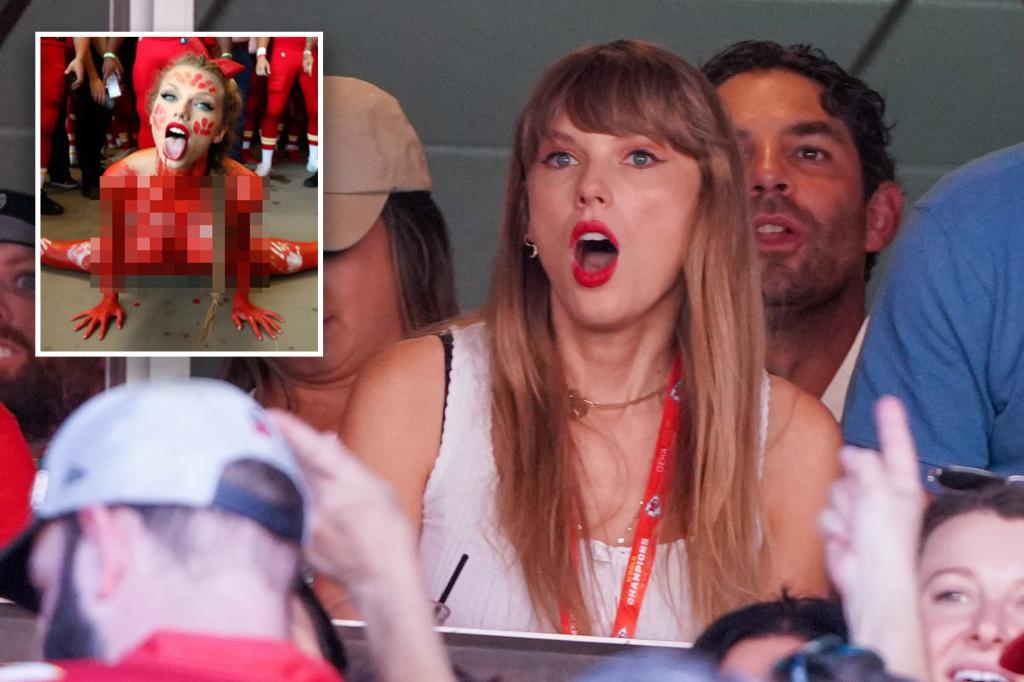Social media users have been sharing fabricated pornographic images of Taylor Swift generated using artificial intelligence, causing distress among her loyal fan base known as Swifties who are questioning the lack of regulations surrounding the unauthorized creation of explicit content.
These manipulated images, commonly referred to as “deepfakes,” portray Swift in various compromising positions, often in association with the Kansas City Chiefs football team and her rumored relationship with Travis Kelce, the team’s tight end.
Despite the origin of these images remaining unclear, the hashtag “Taylor Swift AI” gained significant traction on social media, accumulating over 58,000 posts by Thursday morning.
In response to this disturbing trend, Swift’s devoted followers rallied together to combat the dissemination of these photos by inundating social platforms with positive and supportive messages for the 34-year-old artist.
Questions arose regarding the legality and ethical implications of such creations, with one individual questioning why this act isn’t considered a form of assault and highlighting the absence of laws to prevent the unauthorized use of an individual’s likeness in such a manner.
The blatant disregard for Swift’s privacy and dignity elicited strong reactions from fans, with many condemning the creators and distributors of these “disgusting” deepfake images.
Efforts to address this issue have been made at both the federal and state levels. President Joe Biden’s executive order aims to regulate AI technology, prohibiting the generation of non-consensual explicit content involving real individuals. Additionally, several states have enacted laws to combat nonconsensual deepfake pornography, although challenges persist in curbing its proliferation, particularly in educational settings.
Legislators have introduced bills to criminalize the dissemination of digitally altered pornographic images without consent, emphasizing the need for stricter penalties to deter such malicious activities.
Furthermore, the exploitation of AI technology for fraudulent purposes was exemplified by scammers deceiving fans with AI-generated videos of Swift endorsing products, highlighting the risks associated with the misuse of this technology.
In a separate incident, fake images depicting Pope Francis in a Balenciaga puff coat and Donald Trump evading arrest circulated online earlier this year, underscoring the broader implications of misinformation and manipulation facilitated by AI advancements.





